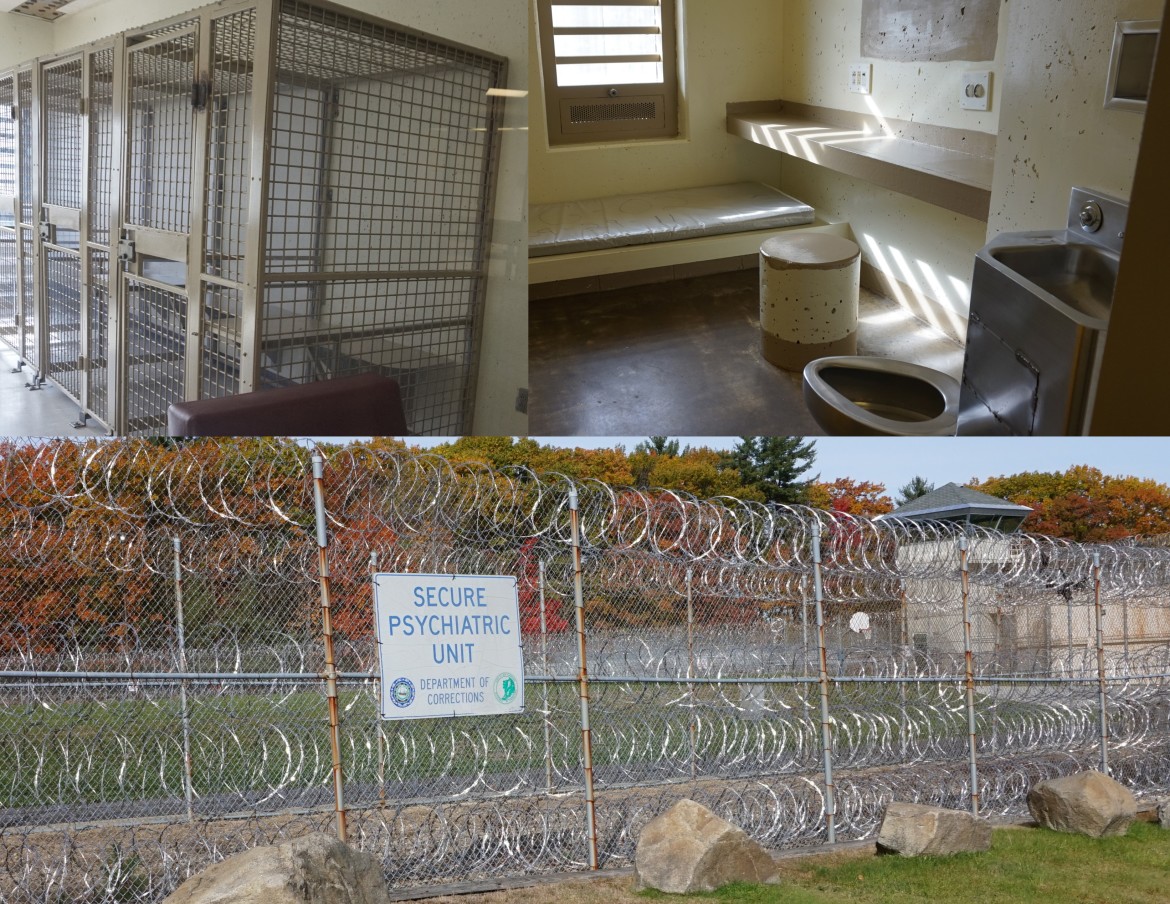By WANDA DURYEA and BEATRICE COULTER
On a glorious late summer day, a groundbreaking ceremony took place for the new forensic hospital on the grounds of New Hampshire Hospital. While it is an enormous step forward, it is only one aspect on much needed reforms around the Secure Psychiatric Unit and management of the forensic population.
The stated capacity of 24 is inadequate. It would seem that after 35 years of sending civilly committed individuals to the prison, addressing adequate capacity would have been paramount. Instead, there is diatribe from state officials over future plans. If you have lived in New Hampshire for any length of time, you know that could translate into decades.
The current landscape of statutes and administrative rules will not prevent the state to continue to utilize the prison as an option for civilly committed individuals. Until they are all repealed and no longer pose a threat to those with serious mental Illness, it is safe to say more work needs to be done. That was also evident a few weeks ago when the CEO of New Hampshire Hospital stated that tasers will be and are used in NHH as they are in the prison. It was then rationalized that being they are deployed by certified law enforcement officers it is permissible. Yet our neighbors to the East experienced something much different in 2014. A state hospital in Maine lost its federal certification due to the presence of tasers and pepper spray. These aforementioned weapons are routinely used in SPU. It was also remarkable to hear talking heads used the word “dignity” as if it was a new discovery. It took over 30 years to recognize that it was a problem. Yet so many in state government have been complicit with the deprivation of dignity for so many for a very long time.
A shiny new building is not going to confront the culture that has been created in the shadow of SPU. It is unclear where that clinical or political courage will come from. Do not be fooled by shiny new objects. It is likely that even after this hospital is operational, at some point a civilly committed individual will find their way to SPU. If the state is so confident that it can manage capacity, forever close the doors to the prison as an acceptable option to send civilly committed individuals. Instead, create an evidence based culture where safety, dignity and civil rights are understood by all who deliver care. Forensic hospitals deal with security challenges. What makes them unique is they are hospitals, not prisons. They are in the business of treatment, restoration and rehabilitation. They promote hope and recovery.
The state must step up its oversight of the population that will remain in SPU. It was mentioned that the individuals deemed Not Guilty by Reason of Insanity (NGRI) will likely remain in the prison. SPU is not a safe place. Its documented history of poor care, neglect and untimely deaths speaks for itself. Such deviations from accepted standards of care can no longer be tolerated. SPU is unable to police itself.
We are sad that our late dear friend, Renny Cushing did not live to see this day. He was the true champion for change. We believe he too would be disappointed to hear that the saga of SPU has not truly ended. Rather, a new layer has been added that will ease the suffering for some, but not all. We can only hope the insidious influence of SPU on policy and its decades long clinical fraud perpetrated against the citizens of New Hampshire will truly end at some point.
The building will be new. The culture will not.
Wanda Duryea
Beatrice Coulter
Advocates for Ethical Mental Health Treatment





